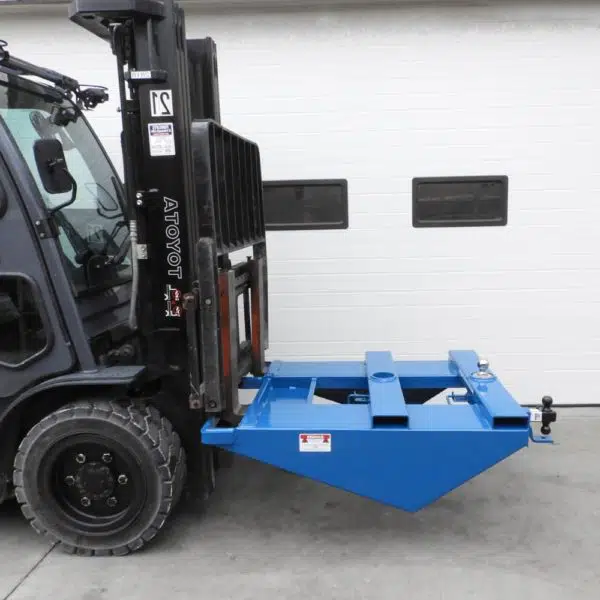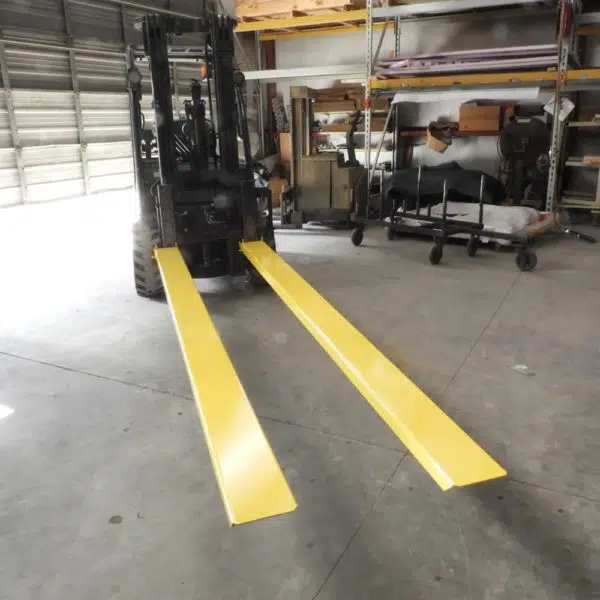Weathering the Storm: How Farmers Can Prepare for Extreme Weather Conditions
If you’re a farmer, weather has the power to bankrupt you or make your fortune.
That’s why, as severe weather becomes more and more common, your very livelihood depends on finding strategies to deal with that weather.
At Iron Bull Manufacturing, we believe in creative solutions, and we know that with the right tools and strategies, farmers can prepare for even the most extreme weather conditions.
Let’s explore seven strategies for dealing with extreme weather.
Be Willing to Get Creative
Farming has always been a delicate balance between consistency and innovation.
You can’t just change your mind every five minutes because it takes many years to establish your crops, attain the right equipment, and adequately train your employees. Consistency pays off in the long run; if you grow the same crops your parents grew when you were young, you’ve likely developed a sixth sense about when to plant, fertilize, cut, and harvest.
At the same time, a number of things could suddenly upend your industry. A newly introduced pest or disease may decimate your crop. The market may fluctuate to the point where your crop is no longer sustainable to produce. New government policies may strain your finances.
In these cases, you have two choices: innovate or lose your farming career.
Today, farmers all over the world are feeling the strain of increasingly severe weather events such as droughts, heat waves, floods, hurricanes, wildfires, and extreme freezes in areas where those things didn’t used to happen as often.
But farmers throughout history have learned to change their crops or farming methods to adapt to the times, so by leaning into innovation, there is a way forward.
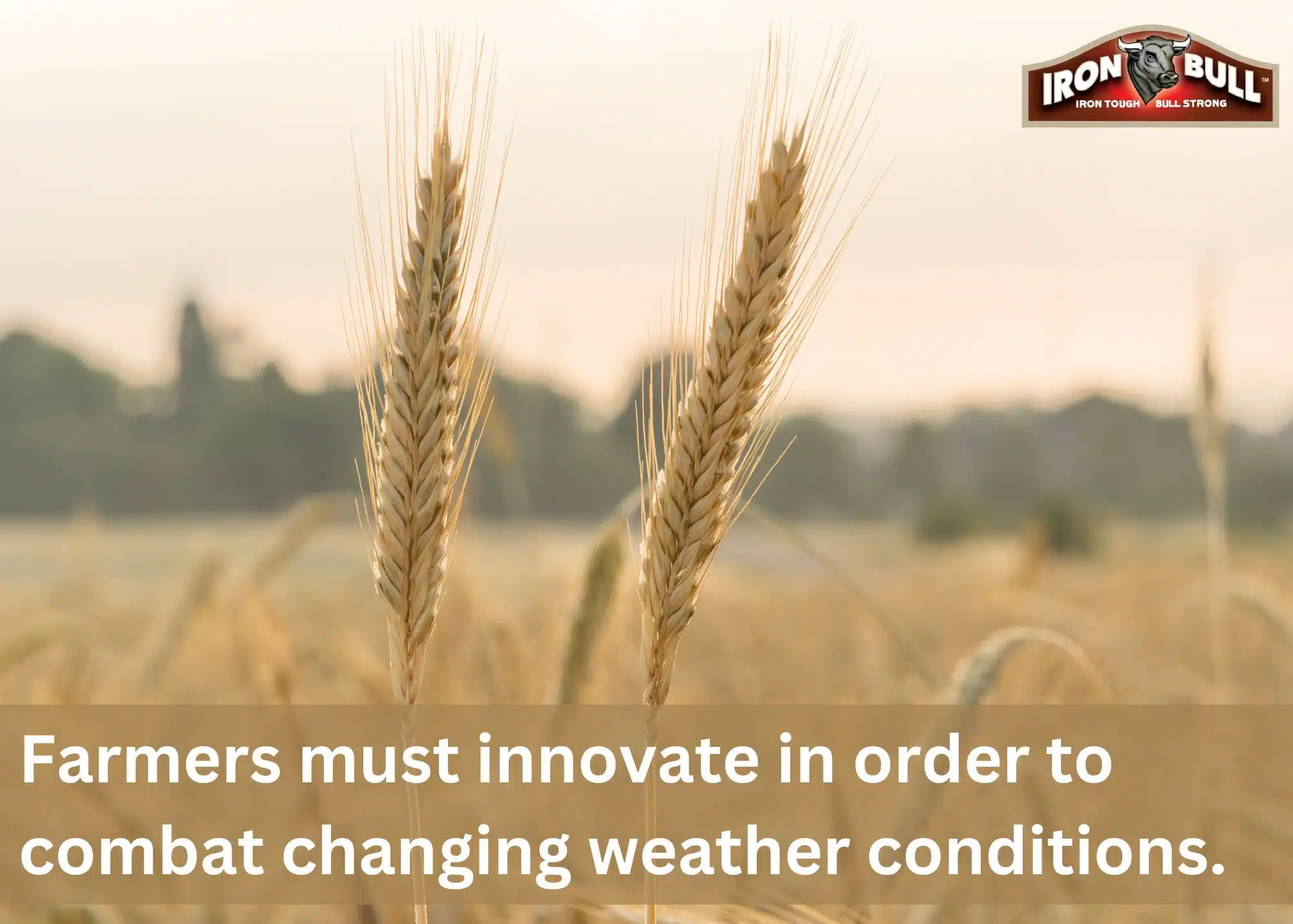
Protect Your Employees
Before you worry about making drastic changes to your farming methods, make sure you, your family, and employees are well-protected from any adverse weather.
Here are some basic ways to do so:
- Tractor sunshades: If your tractor doesn’t have a cab, a durable tractor sunshade will keep your employees comfortable and reduce the risk of skin cancer and heatstroke.
- Well-serviced equipment: Ensure that the heat, air conditioning, windshield wipers, and lights on your equipment are in good working order to keep your employees safe in all weather.
- Appropriate clothing: Your employees should be well informed about the correct clothing to wear to stay warm, dry, or cool, depending on the weather.
- Emergency training: Prepare your employees for severe weather by providing them with training in advance so they know how to respond appropriately in a disaster.
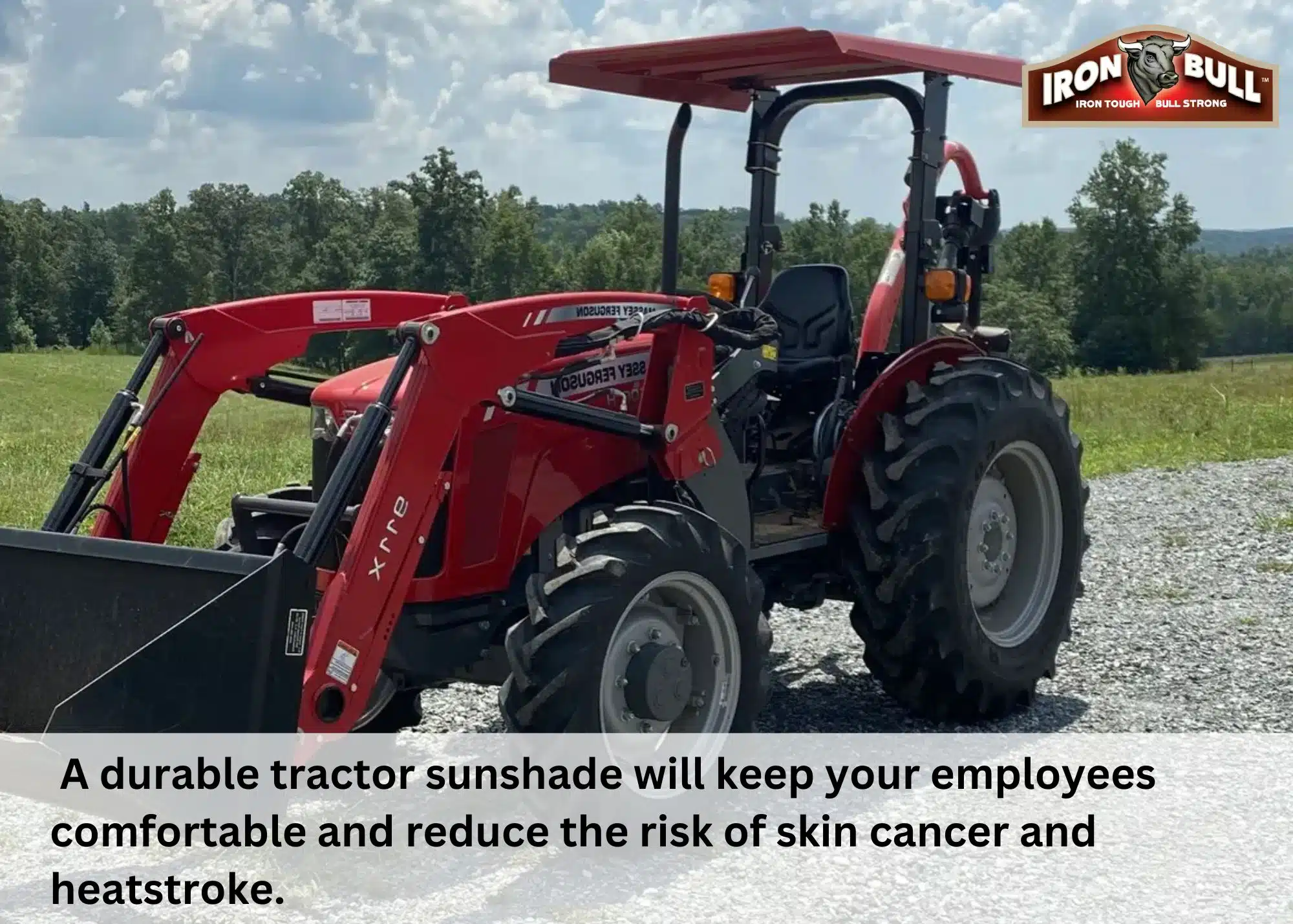
Protect Your Livestock
We get it – life on a farm is hard, dirty work. You don’t always have time to ensure everything is in immaculate condition.
But staying on top of the simple ways your farms runs goes a long way in being prepared for adverse weather.
For example, if your farm has livestock, assess your facilities carefully to see if you’re prepared for future extreme weather events.
- Shelter Adequacy: Are your existing shelters adequate to withstand extreme weather conditions such as heavy rain, strong winds, snow loads, or intense heat? If not, make plans to upgrade your shelters.
- Water Management: Check the water supply systems to ensure they are resilient to extreme weather events.
- Feed Storage and Accessibility: Review the storage facilities for livestock feed and ensure they are secure, weatherproof, and accessible during all weather conditions.
- Fencing and Containment: Examine fencing, gates, and containment structures, identifying and repairing areas vulnerable to severe weather.
- Emergency Supplies and Equipment: Inventory and replenish emergency supplies such as extra feed, water tanks, generators, medical supplies, bedding materials, and repair tools.
- Evacuation and Shelter Plans: If you’re in an area where a flood, hurricane, wildfire, or similar disaster would require you to evacuate your livestock, have a plan for what to do in that situation and train staff accordingly.
Utilize Different Farming Techniques
As the weather changes, the only way to continue farming profitably is to change your farming techniques, adopting better practices that will result in better long-term yields.
Here are some of the main ways farmers are changing their farming techniques to improve the overall health of their farms so they can withstand severe weather.
No-Till Farming
If you live in an area where intense rain and wind are washing or blowing away your topsoil, one solution is no-till farming. Instead of turning over the soil with a plow or disk, farmers leave the previous crop’s residue on the field as a natural mulch and manage weeds with herbicides, cover crops, or crop rotation.
This helps keep topsoil in place even through increasingly severe weather events.
Improving Soil Health
The healthier your soil is, the more it can withstand extreme weather. No-till farming is one way to improve soil health because it minimizes soil disturbance. Other methods include:
- Growing cover crops
- Crop rotation
- Adding nutrients to the soil
- Regenerative agriculture practices
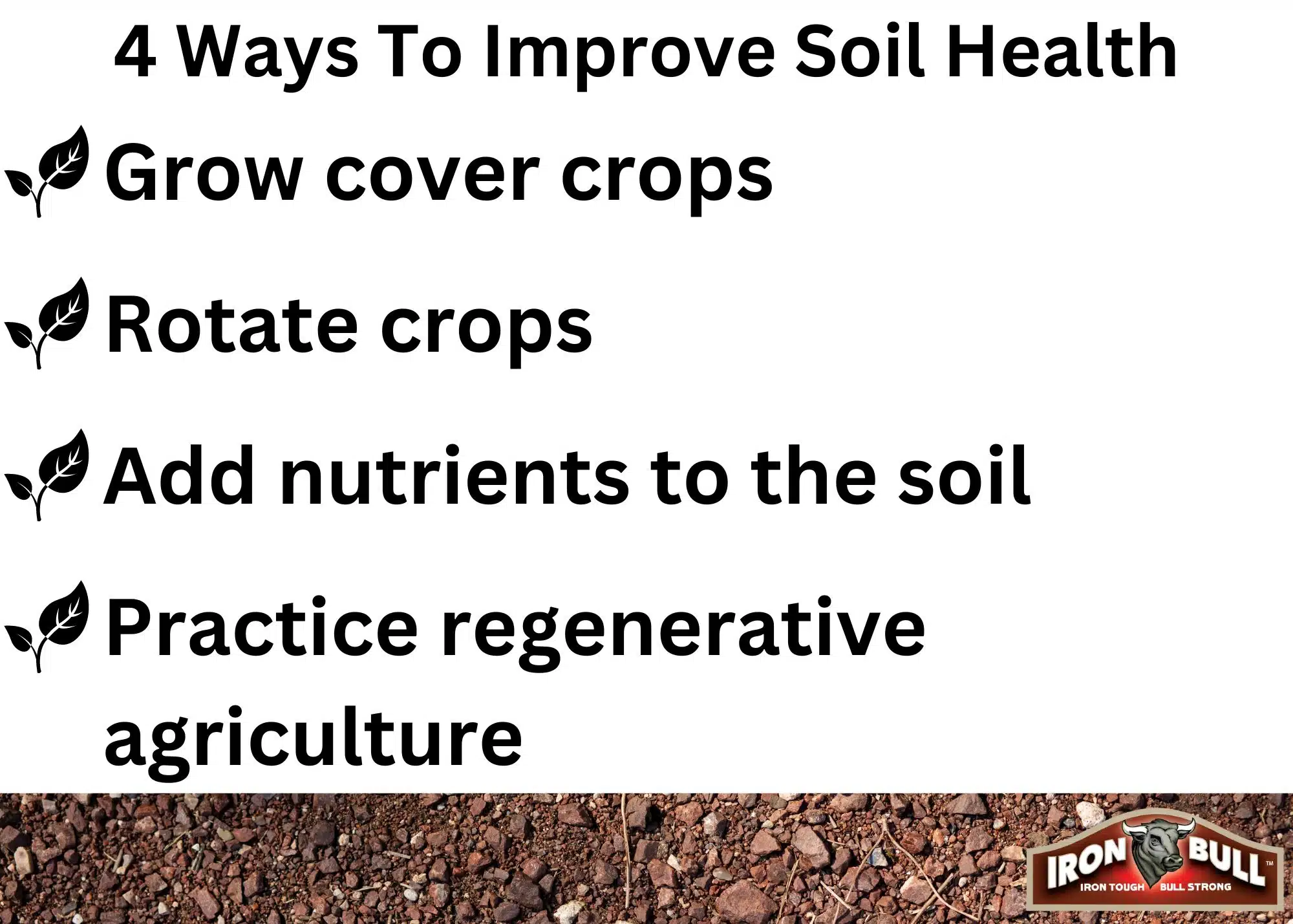
Diversify Crops
Another strategy for dealing with weather changes is to diversify the types of crops you grow.
This includes growing cover crops, as mentioned earlier. It may also involve changing your cash crops to grow more climate-resilient crops.
Just because a crop is profitable now does not mean it will be profitable in the future, so it’s worth experimenting with different crop types and niche markets so you have a backup plan if severe weather or market fluctuations make your current crop less profitable.
Conservation Practices
Overall, your farming strategy should conserve resources and build a robust system that can withstand even the harshest weather. Other ways to do this include:
- Creating water retention ponds to control surface water runoff and prevent soil erosion
- Planting trees, shrubs, or grasses to act as a windbreak
Rotational grazing to use livestock to regenerate pastures
Apply for Grants and Funding
Although conservation practices will benefit your farm long-term, they can be challenging to finance.
However, farming is one of the most critical jobs in the world because we all need to eat, and no one wants to see crops decimated by severe weather events. That’s why, if you’re interested in conservation efforts, several grants and funding options are available.
Expand Your Network
Farmers worldwide are working together to implement better practices in preparation for severe weather. The more you network and learn from other farmers, the more resources you’ll have to safeguard your own farm!
Participate in farmer networks, extension programs, and research initiatives focused on climate resilience to learn from others and stay updated on best practices.
Invest in the Future
Farming is different from other businesses that flare up and then go under within ten or twenty years. The land that sustains you will be here long after you’re gone, feeding your grandchildren and great-grandchildren.
That’s why it’s vital to think beyond this year’s bottom line. Can your current systems withstand the terrible weather that may come five, ten, or fifty years from now?
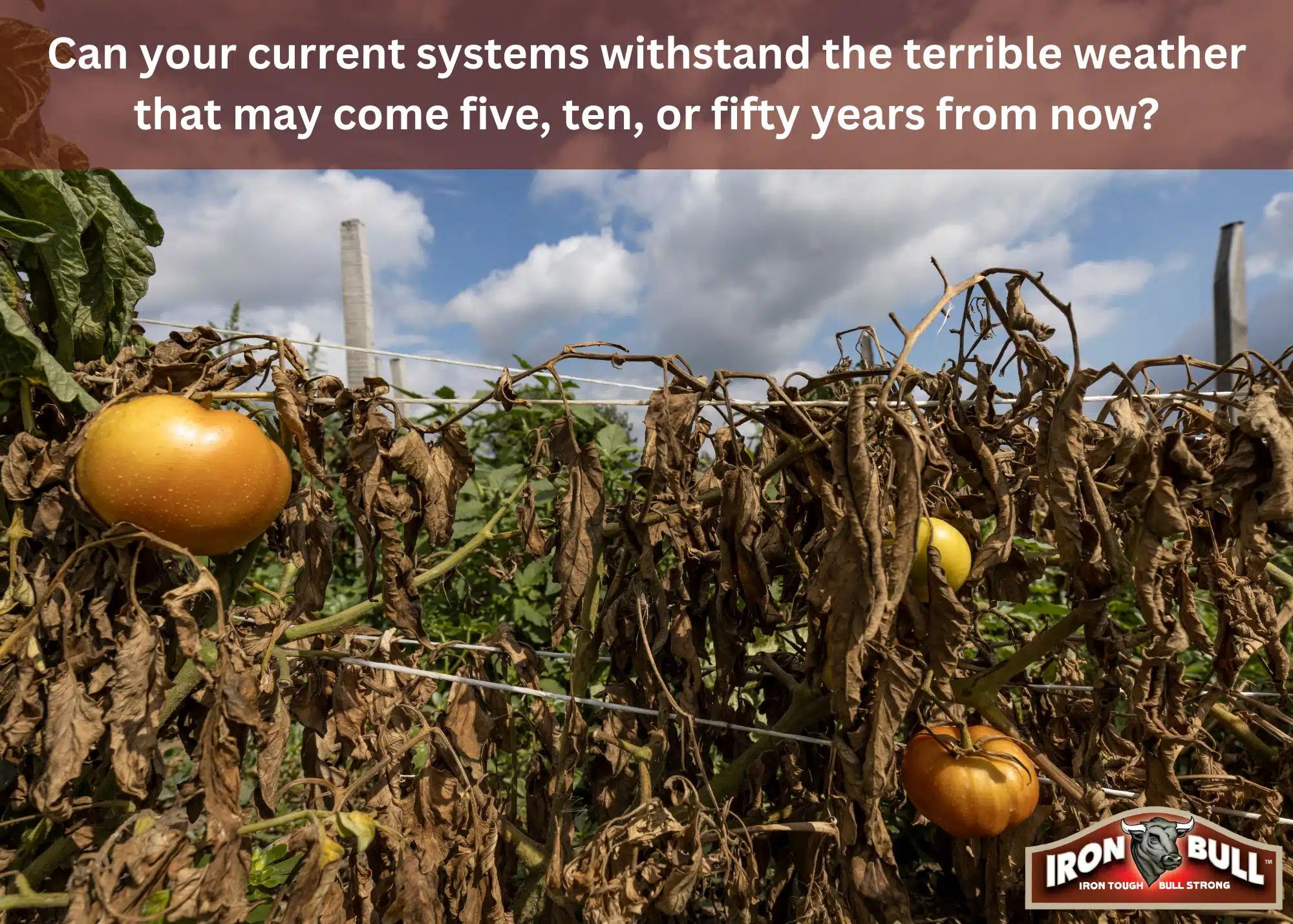
Every decision you make today to build up a healthy, thriving soil ecosystem, conserve water, grow windbreaks, and implement other conservation practices is a decision that will help feed generations of hungry people in the future.
How Iron Bull Manufacturing Can Help
At Iron Bull Manufacturing, we believe in creating quality products that are tough and strong. That’s why we’ve developed a line of tractor sunshades that are Roll Over Protection System (ROPS) certified.
Our sunshades are a great way to protect your employees against skin cancer and sunstroke, even in hotter and hotter weather.
If you’d like more information on our canopies, we’ve written several blog posts on the subject, including:
- 5 Components Of A Quality Tractor Canopy
- 3 Steps To Properly Size Your Tractor Canopy
- The Benefits of Lawn Mower Canopies
We make canopies compatible with most major brands, including:
We even make canopies for riding lawnmowers!
If you’re interested in a well-built tractor canopy that can protect your employees in hot, sunny weather, feel free to take a look at our project gallery or contact us with any questions.
We look forward to hearing from you!
